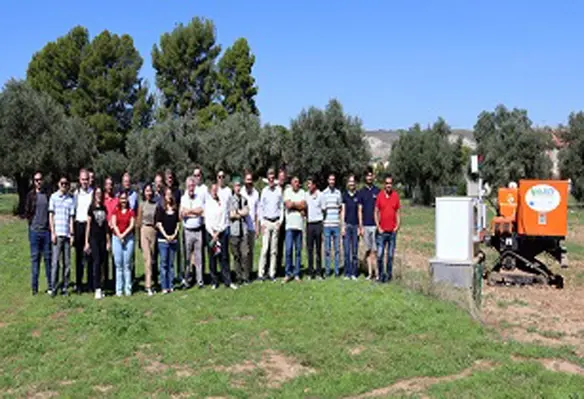Pesticide-free agriculture is just around the corner with the introduction of a precision weeding prototype tool, that successfully eradicates the use of herbicides, thereby improving the productivity and competitiveness of crops
After three long years, an international partnership comprising of research centres, private companies and farmers' organisations from various countries including Spain, Germany, Denmark, France and Poland, among others, by the EU-funded WeLASER project has completed the first stage of development of a precision weeding tool that helps eliminate health risks as well as the adverse environmental effects of chemicals.
The prototype, which includes an autonomous vehicle that drives through the crop, is equipped with an advanced detection system based on artificial intelligence (AI) through image acquisition and data processing. This allows it to distinguish and localise the centre of growth of the weed to be eradicated. Soon after the scanner targets the weed, the high-powered fibre laser source is directed to that meristem. This fast modulation concept allows precise energy pulses to be directed for highly efficient weed treatment. The system includes IoT technology with data being managed by a cloud computing architecture.
Besides the prototype, the project has also resulted in the development of various innovations with multiple applications such as a high-power fibre laser source for the control of adventitious weeds; an improved power supply system for autonomous robotic platforms; and an intelligent navigation manager for autonomous robots applicable to precision farming, to name a few.
Project coordinator Pablo González de Santos, from the CSIC's Centro de Automática y Robótica highlighted that WeLASER would open up a reliable and safe option and offers breakthroughs to solve a global problem. "WeLASER has been a perfect collaboration between leading organisations in each of their fields of work, which has made it possible to have the latest technologies and advances necessary for the development of such a cutting-edge and necessary project. The WeLASER consortium is motivated to adopt smarter farming methods and build more sustainable food production systems while preserving the environment and health."
For more information, visit: https://welaser-project.eu/




